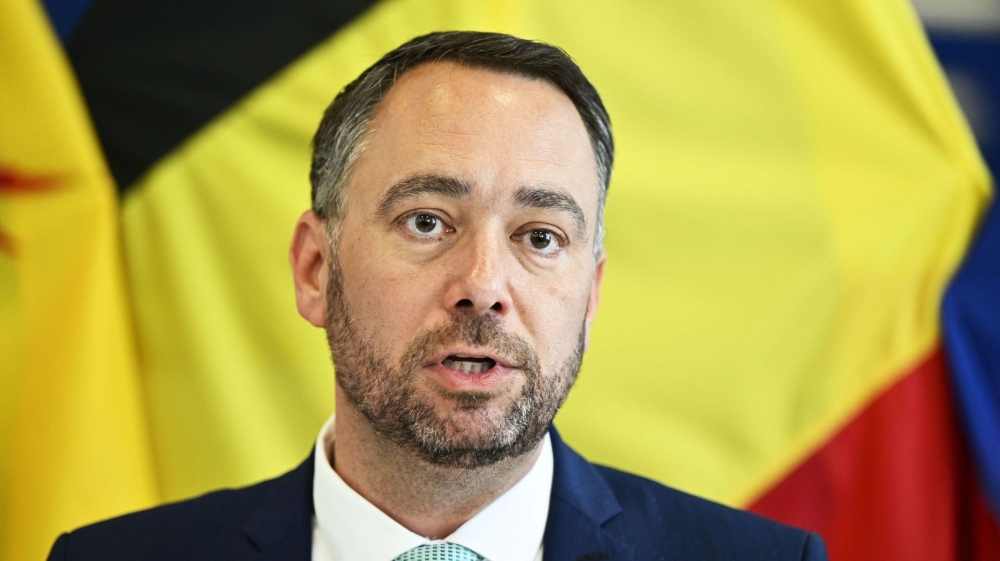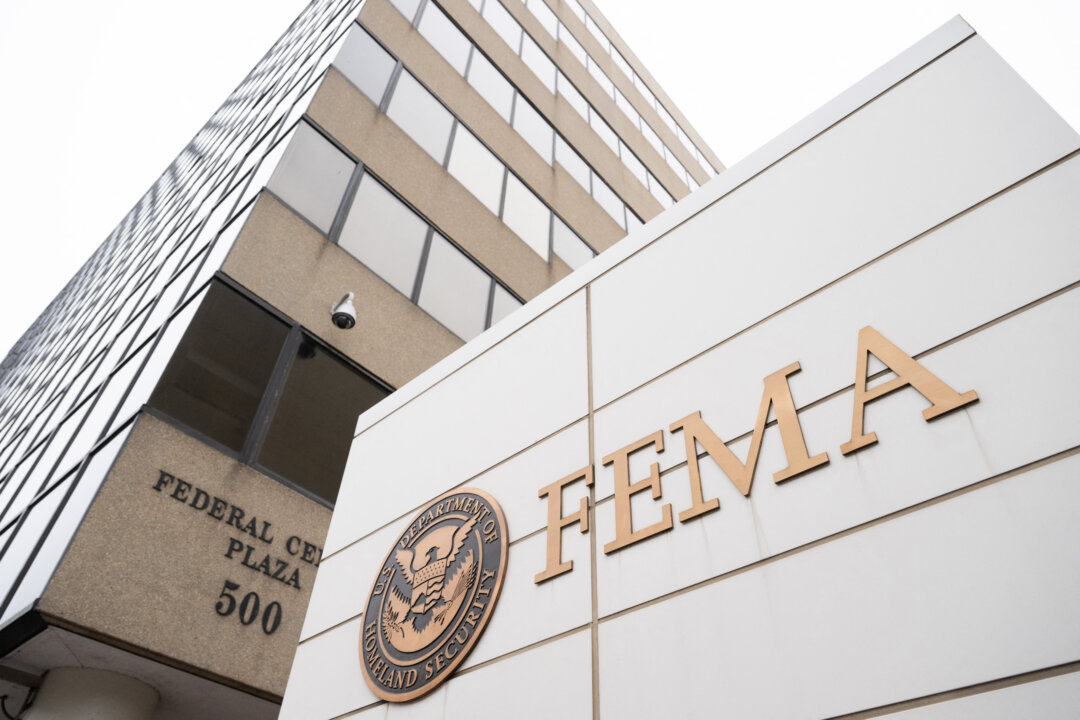By embracing a one-sided and short-sighted foreign policy towards the Democratic Republic of Congo (DRC), Belgium helped shape President Félix Tshisekedi’s dangerous intransigence in the face of the M23 rebellion. This intransigence delayed real peace efforts until more grounded and pragmatic actors like Qatar and the United States stepped in. These latecomers understood both the root causes of the eastern DRC conflict and the reality on the ground.
Unlike Belgium, they did not fall for the shallow political theater crafted in Kinshasa — one that misrepresented victims as villains and glorified genocidal actors as patriots. For years, Brussels, obsessed with preserving an outdated notion of “Belgian-Congolese interests,” actively encouraged Tshisekedi’s military-first approach. The Luanda and Nairobi processes were cast aside in favor of pomposity and belligerent rhetoric, driven by illusions of military victory and diplomatic sanctions against Rwanda.

Belgium, hand in glove with Kinshasa, banked on this strategy without lifting a finger to address the actual drivers of violence in the Kivus: the FDLR genocidaires, ethnic cleansing, and the enduring exile of Congolese Tutsi refugees. Now, as regional and international powers like the East African Community (EAC), the Southern African Development Community (SADC), Qatar, and the U.S.
converge around real solutions — including negotiations and refugee return — Belgium is awkwardly backpedaling. Brussels, suddenly struck by diplomatic amnesia, has dispatched Foreign Affairs Minister Maxime Prévot on a regional tour. Changing positions In a surprising shift, he now acknowledges the previously ignored: FARDC’s collaboration with genocidal FDLR elements, widespread hate speech against Congolese Tutsis, and the blatant refusal to reintegrate Tutsi refugees who’ve languished in exile for over three decades.
But this U-turn comes far too late. The damage has been done. Belgium’s influence within the European Union was mobilized not to curb Kinshasa’s reckless alliances, but to shield them — to reinforce the illusion that Tshisekedi’s government was the victim of Rwandan aggression rather than a regime enabling mass atrocities against its own people.
Europe issued condemnations of Rwanda and sanctioned Rwandan officials, all while turning a blind eye to the impunity of the FDLR and the Congolese army’s integration of hate-fueled militias into official structures. In all these collusions, Brussels was not merely an observer; it was an enabler of a prolonged conflict and more suffering of the Congolese. Under its watch, the DRC armed countless “Wazalendo” fighters — loosely organized ethnonationalist militias, many of which explicitly declared their intent to “cleanse” eastern Congo of Tutsis.
These groups are now part of the RAD (Armed Defense Reserve), legitimized by Kinshasa, and used as auxiliary forces by the FARDC. This grotesque militarization of anti-Tutsi sentiment is not an unfortunate side effect; it is the strategy. The so-called Wazalendo militias operate under a single slogan: “We do not want Tutsis among us.
They are invaders who want to take Bantu lands.” This terrifying mantra is reminiscent of the propaganda that preceded the 1994 Genocide Against the Tutsi in Rwanda. It is an echo Belgium should be painfully familiar with, given its colonial role in fomenting ethnic hatred in the Great Lakes region.
Yet today, as hate speech flourishes in the DRC, Belgian diplomacy has offered no serious pushback. On the contrary, activists and officials affiliated with President Tshisekedi’s UDPS party — including vocal anti-Tutsi ideologues like Justin Bitakwira and Constant Mutamba — speak and act with impunity. Where is the outrage? Where is the accountability? By refusing to call out this dangerous rhetoric and tacitly backing Kinshasa’s narrative, Belgium bears part of the blame for the current chaos.
Hate speech is not a bug in this system; it is the feature that drives popular mobilization against AFC/M23. The demonization of Congolese Tutsis as Rwandans — aliens in their own country — has served as a unifying cry for a fragmented nation, manipulated by an insecure leadership looking for scapegoats. The AFC/M23 crisis is not a simple rebellion.
It is a symptom of a larger illness: the refusal of successive Congolese governments to allow the dignified return of Tutsi refugees and to accept ethnic Tutsis as full citizens. This crisis did not begin in 2022; it is rooted in over three decades of statelessness, mass displacement, and targeted violence. The FDLR, founded by perpetrators of the Genocide Against the Tutsi, has weaponized this discrimination, coercing thousands of Congolese into joining their war of revenge.
What kind of peace can be achieved when genocidaires are used as de facto partners in state military operations? What disarmament process can succeed when the armed groups being disarmed are officially sanctioned by the government and fueled by state-sponsored ideology? The Congolese state has entirely lost control of its eastern territory. Even President Tshisekedi — supposedly the Commander-in-Chief — has no clear idea how many Wazalendo fighters he has armed. His inner circle is dominated by opportunists and extremists who have used his weakness and inexperience to militarize local conflicts, radicalize communities, and institutionalize violence.
The state’s security apparatus no longer follows a centralized logic but a patchwork of local warlords and ethnic militias who operate with little oversight and even less discipline. This situation has created a security nightmare. Civilians — particularly Congolese Tutsis — live in perpetual fear of harassment, violence, or worse.
Armed groups proliferate. Arms flow freely. Hate spreads like wildfire.
The international community is left to guess whether the chaos is a result of incompetence or design. Amid all this, the Congolese government has continued to insist on fighting M23 militarily, refusing dialogue despite regional agreements. This refusal was not organic.
It was nourished by a foreign policy cocoon — chiefly Belgian — that coddled Kinshasa's delusions of victimhood while ignoring the growing radicalization in its ranks. Only when Qatar and the United States entered the scene did the narrative begin to shift. Unlike Belgium, these actors came with a clear understanding: that no peace can come without addressing the core issue — the citizenship, safety, and return of Congolese Tutsi refugees, and the disbandment of FDLR-linked militias.
They brought nuance, pressure, and above all, realism. Trying to catch up Now Belgium finds itself irrelevant — a sidelined actor scrambling to remain visible through “shuttle diplomacy.” Minister Prévot's acknowledgment of hate speech and the FDLR-FARDC alliance may be too little, too late.
These aren’t new revelations; they’re well-documented facts long denied or dismissed by Belgian officials eager to defend their ally in Kinshasa. The final irony is that Belgium’s blind diplomacy contributed to the exact conditions that now threaten to implode eastern Congo entirely. What was once framed as “protecting Congolese sovereignty” has become a recipe for state disintegration.
The “Wazalendo” militias are not tools of order; they are seeds of uncontainable violence. The jinn is out of the bottle, and no one knows how to put it back. Without strong regional cooperation — especially involving Rwanda, Uganda, and Tanzania — and a reinforced AFC /M23 with credible disarmament objectives, eastern Congo is doomed to spiral further.
Burundi and SAMIDRC have proven biased and ineffective, and MONUSCO has long ceased to be a serious stabilizing force. Belgium must come to terms with its failure. It must own up to the role it played in legitimizing hate, misdiagnosing the crisis, and emboldening a regime that flirts with mass atrocity.
It’s time for Brussels to abandon its outdated neocolonial instincts and align with efforts that actually prioritize peace, inclusion, and accountability. And so, the great warrior of soundbites, President Tshisekedi — who once thundered before cameras that he would “never negotiate with foreign terrorists” — has now, in a stunning plot twist, sat down with those very same “terrorists.” M23, once cast as invaders from another galaxy (or maybe just Rwanda), have suddenly become negotiable humans—and Congolese.
Who knew reality had such a sense of irony? As for Belgium — oh Belgium! — the colonial nanny who cheered Tshisekedi’s chest-thumping while nudging the EU into a hall of mirrors, now finds itself playing catch-up in a diplomatic race it helped derail. After fanning the flames, Brussels now wants to play firefighter, traipsing through the region with a bucket of half-apologies and declarations of “grave concern.” Maxime Prévot’s epiphany — that arming genocidaires and ignoring refugees might not be such a wise policy after all — came only after the defeats started piling up like overdue colonial reparations.
Tshisekedi, once so sure he’d crush M23 and dethrone Rwanda's President Paul Kagame before lunch, now mumbles agreements while peeking over his shoulder. Reality bites. And when it does, it doesn’t care how many flags you wave, or how many EU statements you forge — it just reminds you that slogans don’t win wars.
Sound policy does..
Politics

Belgium’s blindfolded diplomacy undermined peace in Congo

By embracing a one-sided and short-sighted foreign policy towards the Democratic Republic of Congo (DRC), Belgium helped shape President Félix Tshisekedi’s dangerous intransigence...















